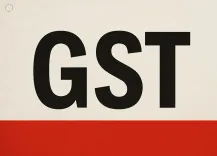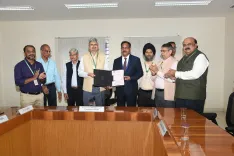Is GST 2.0 a Revolution or Just a Reform? Insights from Hiranandani Group's Niranjan Hiranandani

Synopsis
Key Takeaways
- GST 2.0 introduces a simplified tax structure.
- Essential goods see reduced tax rates.
- Sin goods are taxed at a higher rate to deter consumption.
- The removal of GST on medicines supports healthcare affordability.
- Overall, GST 2.0 aims to boost the economy by increasing consumer spending.
Mumbai, Sep 4 (NationPress) Dr. Niranjan Hiranandani, co-founder and Managing Director of the Hiranandani Group, has described the recent transformation of the Goods and Services Tax (GST) 2.0 as "revolutionary", referring to it as a "bold and transformative step" by the government led by PM Narendra Modi.
In an interview with IANS, Hiranandani remarked, "PM Modi mentioned during his Independence Day address that something revolutionary and exciting would arrive before Diwali. He has delivered. This isn’t merely a reform—it’s a revolution."
He applauded the new GST 2.0 framework, pointing out the implementation of just two tax slabs and a 'sin tax' of up to 40 percent on harmful products like tobacco and sugary drinks. Additionally, the GST on essential construction materials has been lowered to 18 percent.
"Some might argue that these are only adjustments, but the truth is otherwise. The perpetual challenge has been to balance the necessity for government revenue—critical for infrastructure and technology—with fostering growth. This new strategy accomplishes both," Hiranandani stated.
He emphasized that the new tax system provides direct relief to the populace.
“Basic food items that were taxed at 12 percent have been reduced to 5 percent, while harmful goods have justly seen a tax hike.”
Hiranandani also commended the elimination of GST on medicines.
“This is a crucial measure. Many individuals, particularly from middle and lower-income brackets, face challenges with healthcare expenses. Removing GST on medicines is a compassionate and necessary action.”
He further lauded the government's initiative regarding sin goods.
"Products that are detrimental to health are taxed at 40 percent, which is beneficial since it aims to reduce their consumption," he added.
As the GST Council approved unprecedented modifications to India's indirect tax system, numerous daily necessities will see price reductions starting September 22.
The newly adopted tax framework features two primary slabs of 5 percent and 18 percent, and a substantial 40 percent for sin goods.
For everyday consumers, this alteration means more disposable income, which the government anticipates will stimulate economic activity.
A wide range of goods—from groceries and fertilizers to footwear, textiles, and even renewable energy—are set to become more affordable. Items previously taxed at 12 percent and 28 percent will shift to the other two slabs, resulting in significant price drops for many products.







